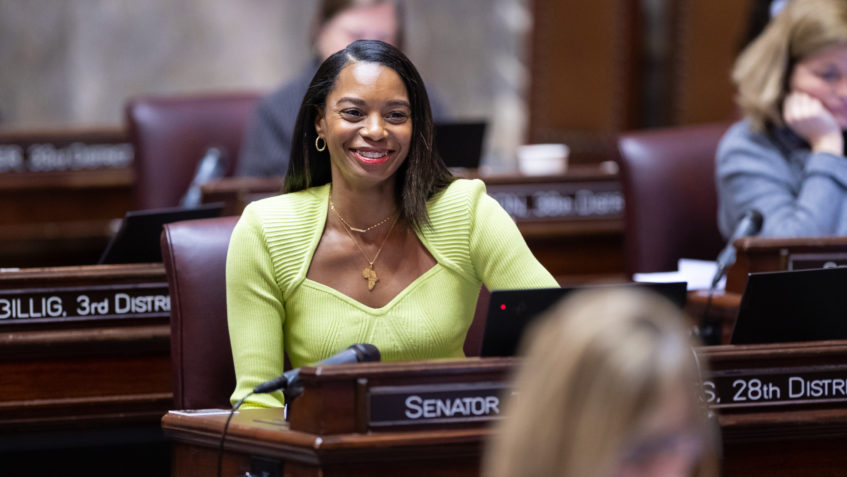OLYMPIA – Education remains one of the top priorities for the Washington State Legislature and Sen. T’wina Nobles (D-Fircrest) brought forward several proposals to advance educational opportunities, which have passed the legislature and are now headed to the governor’s desk.
“As a former educator and mom, access to quality education for every student is always a priority to me,” Nobles said. “We identified early in session that one of our priorities this year would be success for every child. That is a goal we take seriously, not just as our duty as a state, but as a constant vision that allows us to keep student welfare top of mind.”
Senate Bill 5711 extends the terms of eligibility for the Washington College Grant program, which is the state’s largest financial aid program and currently provides students up to five years in aid for the cost of a four-year degree. However, due to any number of reasons, a student may not complete a degree in 5 years. The bill expands eligibility for up to 6 years in aid and align it with the federal Pell Grant. By aligning with the federal standard, the burden on administrative college aid offices is reduced. The bill was requested by the Washington Student Achievement Council.
Senate Bill 5072 applies universal testing for the highly capable program, which has been part of basic education in Washington since 2011. The bill requires districts to universally screen all students in both early and late elementary years for highly capable services. Universal screening does not need to include a new test, and districts can use existing data they already collect about students. Current statute requires teachers or parents to refer individual students for consideration, but without referral, some students may be left out of the process. Students who are highly capable and don’t receive appropriate curriculum are at risk of being mislabeled as below grade level, disengaging from school, or having behavioral concerns.
Senate Bill 5257 ensures elementary-age students received enough daily recess statewide. There is currently no state law guaranteeing recess for students, and in some cases, recess has been withheld as a form of disciplinary behavior. Research shows recess can help reduce stress, form social connections and learning inside the classroom. More than 20 states have state recess or physical activity laws already in place, including Alaska, Arkansas, Arizona, Illinois, Georgia, Louisiana, Mississippi, Texas, and West Virginia.
Both SBs 5072 and 5257 have passed the House and await the governor’s signature, while SB 5711 is still under consideration in House Appropriations.

